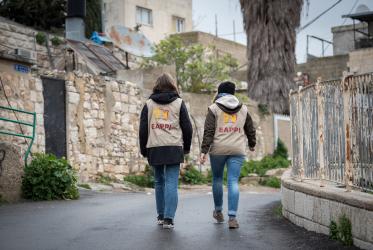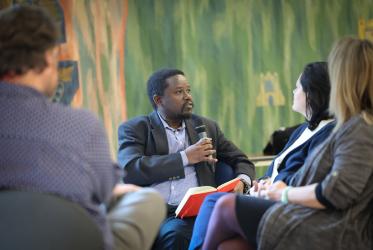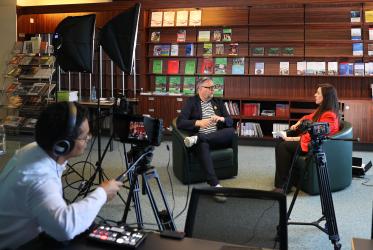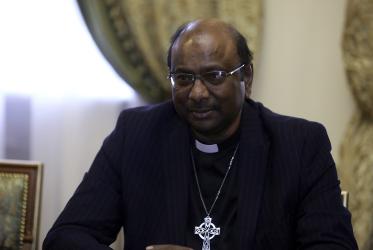Mostrando 21 - 40 de 263
“הכיבוש אינו יכול להחזיק מעמד לנצח”
31 Octubre 2023
“La ocupación no puede durar para siempre”
30 Octubre 2023
«L’occupation ne peut durer éternellement»
30 Octubre 2023
הילדים מרגישים בטוחים ללכת לבית הספר כאשר ה-EA נוכחים
30 Octubre 2023
„Besetzung kann nicht ewig dauern“
29 Octubre 2023
A Guide for Churches on the Prevention of Obstetric Fistula
26 Octubre 2023
At peace conference, WCC focuses on overcoming racism
26 Octubre 2023
“The occupation can’t last forever”
25 Octubre 2023
“They want to live without fear and constant harassment”
25 Octubre 2023
Kids Feel Safe Going to School when EAs are Present
23 Octubre 2023
En Arménie, le secrétaire général du COE promeut la justice
28 Septiembre 2023
En Armenia, el secretario general de CMI aboga por la paz
28 Septiembre 2023
ÖRK-Generalsekretär plädiert in Armenien für Gerechtigkeit
28 Septiembre 2023
ACT Alliance general secretary: “equity is not negotiable”
26 Septiembre 2023
A journey through advocacy, women's leadership, and the Korea peace appeal
25 Septiembre 2023








